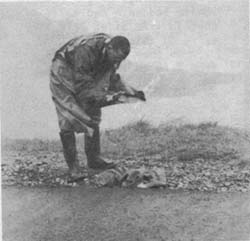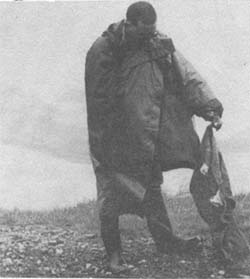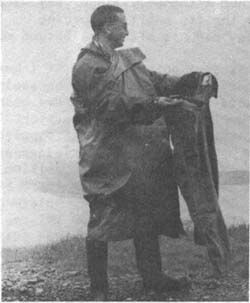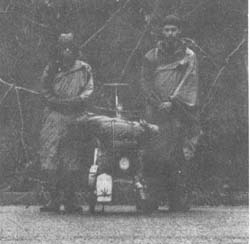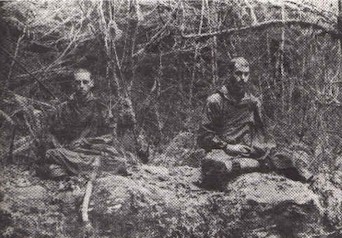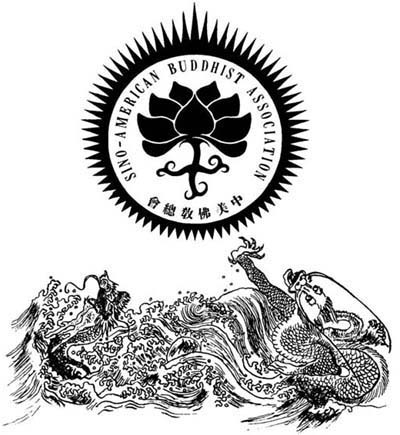|
NEWS
FEATURE
VAJRA
VOWS
By
American Bhiksuni Heng Ch'ih
Fulfilling
the vow to bow every step in a 1,000-mile trek from San Francisco is not the
first taste of asceticism, which the two bhiksus (Buddhist monks) from Gold
Mountain Monastery have had in their lives. Once while Bhiksu Heng Ju was
serving in the Navy he was enrolled by his ship's captain in a divers
school—one of the roughest in the nation. The work began every day at 5 A.M.
and the pace of deep diving, mud diving, night diving, swimming, and running
never let up. One morning Heng Ju collapsed in the front ranks and was trampled
by the following runners, and in spite of his bruises he was made to run up and
down the pier wearing a fifty pound belt for an hour that evening for a
punishment. He graduated first in his class.
Heng
Ju spent the better part of five years on and below the surface of the Pacific
living in a 340-foot submarine with seventy-two other men. They slept in tiers
of five bunks, each bunk the size of a coffin, two feet wide, a foot high, and
six feet long. Heng Ju is exactly six feet four inches, but he was able to
negotiate and ended up in a bunk adjacent to a five and a half foot-sailor.
These dense conditions coupled with a rolling sea, putrid air. And constant
awareness of being surrounded by millions of tons of water served as excellent
preparation for Heng Ju's present austere practices.
He
began his trek on October 16th, 1973, and has now bowed more than 450 miles,
first up Route One, and now on 101. He is very near the Oregon border. Hiking
(and bowing) north in the dead of winter, he is faced day and night with the
merciless storms along the Pacific coast. Floods, battering rains, biting winds
and bitter cold may stiffen his body but his conviction is ironclad and not
daunted by the perpetual endurance test.
Heng
Ju's partner and protector on his Journey north is Bhiksu Heng Yo. While residing at Gold Mountain, Heng Yo developed his ascetic skills by
living out in back of the monastery year round in a makeshift hut which left him
vulnerable to the winds, rains, and penetrating cold of foggy Bay Area nights.
The hut is only 4x2 feet, and he never lay down but sat through the night
practicing meditation.
Heng
Yo also was rarely seen in new clothes. He took up the practice of finding
discarded clothes and old but useable cloth, which he patched together into,
garments. He likes to help others by using only what others can't use for
himself, in fact, when he set out to accompany Bhiksu Heng Ju on his bowing
Journey, Heng Yo didn't take the precautions of putting on anything durable or
warm, but Just wore what he had on, the usual patched clothes.
After
the monks had bowed for barely two days, Heng Yo's patched pants began to rip a
little each time he bowed, until bit by bit, he was in danger of losing them
altogether. Since they were travelling light, and because of his thrifty habits
regarding clothes, Heng Yo hadn't packed extras, and his situation became more
dire with each step he took.
|
